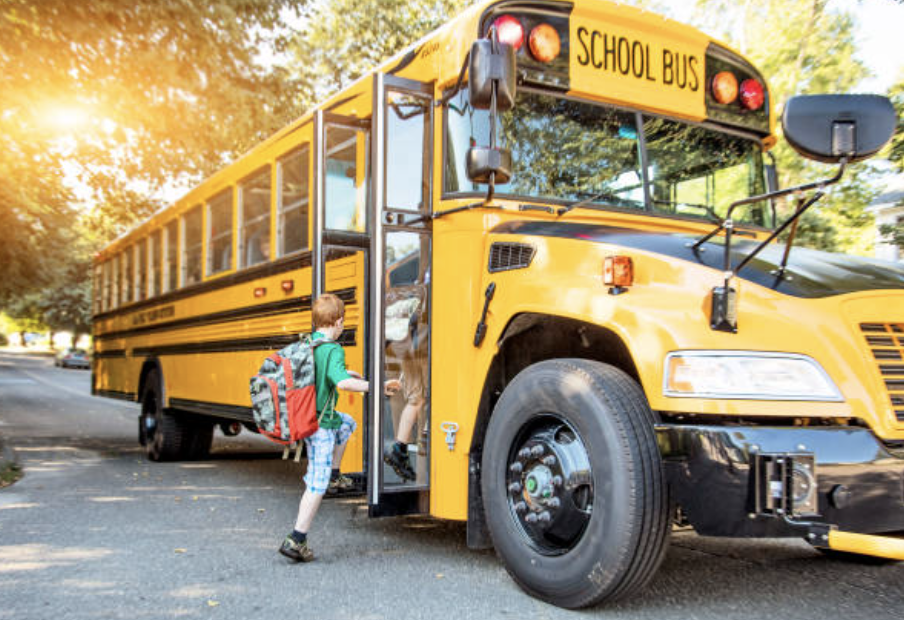

Behavior in school buildings and buses has been a popular talking point in recent years with the large amount of behavioral incidents. (Photo by stu99/iStock Getty Images)
Proposed legislation created in response to community complaints about school safety and discipline focuses on trouble in and with school buses.
Senate Bill 330, sponsored by Sen. Laura Sturgeon, D-Hockessin, adds intentional interference with the operation of a school bus to the offense of disorderly conduct.
RELATED: School Behavioral Infractions Remain Above 30000 Annually
Infractions include:
- Boarding a school bus and refusing to exist after being lawfully ordered to do so by the school bus driver
- Wrongfully restricting the movement of a school bus
- Threatening the school bus driver or any passenger entering, leaving, or waiting for a school bus
The legislation stems from a recommendation from the state’s Public School Transportation Committee, which said that many school bus drivers encounter irate individuals during their daily routes.
RELATED: School behavior group wants more funding for specialists
“Incidents of interference with the operation of a school bus have been becoming increasingly frequent, with 108 such incidents reported in the 22-23 school year, and 134 reported in the 23-24 school year,” Sturgeon said. “The type of incidents that our bus drivers are reporting are well described in the bill synopsis, but anecdotally, we have heard of instances such as an adult disobeying the driver’s order and actually entering the bus and walking down the aisle to threaten a student.”
She said since there does not currently exist a law which would effectively deter this type of behavior, when police are called, they say the only thing they can charge is trespassing.
Sen. Kyle Evans Gay, D-Talleyville, asked if there were defined crimes that could lend themselves to law enforcement.
Sturgeon read a response she received from the Department of Justice before the hearing.
“Much of the conduct, depending on the specifics of what is said, how it is said, what is done and the effects on the people present, could fall within aspects of under Title 11 [including] harassment, terroristic, threatening and disorderly conduct,” Sturgeon read. “On the very other end of the spectrum, depending on how egregious the conduct is and what the scenario is, the restriction of movement could start to work its way towards the definition of restraint within Title 11, and kidnapping definitions.”
Title 11 in Delaware Code outlines crimes and criminal procedure.
“This legislation is intended not to be a panacea for the real problem that we face with the hundreds of situations where people are obstructing buses, trying to get on buses, having the driver have to slam the door in their face so that they don’t come on, but it’s just an another arrow in our quiver that we can go to the police and say ‘This is what happened’,” said Laird Stabler, speaking on behalf of the Delaware School Bus Contractors Association.
He said the bill is a step in the right direction in making sure buses are safe for students, bus drivers and staff.
Gay asked him what it means to be lawfully ordered to leave a bus.
“I would have to suspect that’s subject to the interpretation of the court, I don’t know the specifics of that,” Stabler said. “My guess is that the bus driver has every right to say to an individual ‘You are not allowed to be on this bus,’ and that would probably constitute a lawfully ordered situation, but I think we have to be adjudicated.”
Sen. Stephanie Hansen, D-Middletown, said unruly and bad behavior should not be part of the experience for the bus driver.
“It’s a concern, too, as a parent and as a grandparent, having children ride the bus every day, we expect them to be safe, we expect them to be kept safe by the adult on the bus,” she said, “and if the adult on the bus, historically and consistently over time, over a number of years, is now telling us we need some assistance or we’re not going to do this job anymore, then I think we have an obligation as members of the legislature to listen to that and to to assist them.”
Senate committees do not vote publicly on bills, but instead sign the back of the bill with their vote after the hearing, which is posted on the bill tracker several hours later.
If the education committee chooses to release it, SB 330 will make its way to the full Senate floor for discussion.


Raised in Doylestown, Pennsylvania, Jarek earned a B.A. in journalism and a B.A. in political science from Temple University in 2021. After running CNN’s Michael Smerconish’s YouTube channel, Jarek became a reporter for the Bucks County Herald before joining Delaware LIVE News.
Jarek can be reached by email at [email protected] or by phone at (215) 450-9982. Follow him on Twitter @jarekrutz and on LinkedIn
Share this Post







